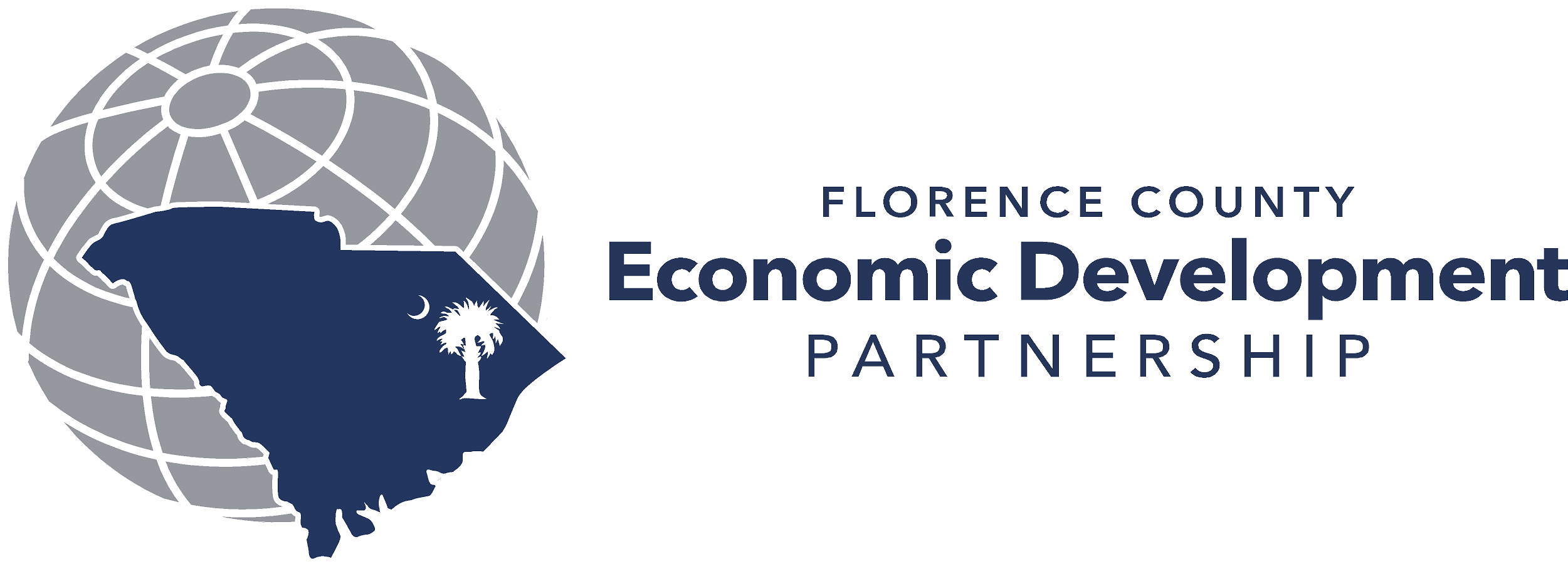South Carolina is known to be one of the most business friendly states in the country, and Florence County prides itself on offering competitive incentives to industries that plan to create high quality jobs. The following is a brief overview of some of the statutory and discretionary incentives programs available to industries looking to locate in Florence County, South Carolina.
Statewide Incentives
Credits against SC corporate income taxes
- Job Tax Credit: eligible companies can receive $2,750 per job per year for 5 years, offsetting up to 50% of state income tax liability
- Unused credits can be carried forward 15 years
- A county may also join with another county to form a “multi-county industrial park” to raise the value of the Jobs Tax Credit by $1,000 per job to the above Jobs Tax Credits.
- Corporate Headquarters Credit equal to 20% of the costs of development, construction, or direct lease costs during the first five years of operation when a company creates at least 40 HQ jobs
- Enhanced Corporate Headquarters Credit of 20% for personal property purchased for headquarters when a company creates 75 or more HQ jobs paying at least 2 times the state per capita income
- Economic Impact Zone Investment Tax Credit of up to 5% of the costs of a manufacturer’s new production equipment in certain counties.
- Child Care Credit for establishment and operation of a day care facility for employees up to $100,000 for capital expenses and up to $3,000 per employee for operating costs.
- South Carolina offers a credit equal to 5% of the taxpayer’s qualified expenditures for research and development made in the state. The credit taken in any one tax year may not exceed 50% of the company’s remaining tax liability after all other credits have been applied with a 10-year carry forward for any unused portion of the credit from the date of the qualified expenditure.
State and Local Sales Taxes
- Out-of-State sales exempted.
- Tax Credit for Out-of-State purchases of tangible personal property.
- Manufacturers are exempt from S.C. Sales Taxes on machinery and equipment, research and development machinery and equipment, repair parts, materials which will become an integral part of a finished product, electricity utilized in the manufacturing process and all pollution control equipment.
- All industries in S.C. are exempt from sales taxes on packaging materials and long distance telecommunications, including 800 services.
- S.C. Sales Taxes are capped at $300 for equipment utilized in research and development and on aircraft, motor vehicles, boats, recreational vehicles and certain other items.
- Material handling equipment is exempt from S.C. Sales tax for manufacturers and distributors who invest a minimum of $35 million in the project (Taxpayer must file a notice before incurring expenses).
Enterprise Program – Job Development Credit
- Provides companies with funds to offset the cost of locating or expanding a business facility in S.C. by allowing qualifying companies to utilize a portion of their employee’s tax withholding for eligible project expenses.
- Reimburses qualifying approved companies that add value to South Carolina or the community in which they locate. A company can collect the credit for 10 years (or up to 15 for certain “mega-projects”).
- Reimbursements are for eligible capital expenditures (land, building improvements, site development, or infrastructure), certain training expenses, transportation facilities, the purchase/acquisition of pollution control equipment, and employee relocation expenses associated with new or expanded technology intensive facilities.
- Associated with projects creating new full-time jobs and providing health care benefits for S.C. citizens.
- The Job Development Credit program varies from 2% to 5% of eligible tax withholdings based on average hourly wages paid.
- The Jobs Development Credit also varies by location from 55% to 100% of eligible employee tax withholdings depending upon the economic conditions existing in the county where the investment occurs. The percentage level for Florence County as of 2020 is 70%.
- To be eligible to apply for the JDC, a company must create at least 10 net new full-time jobs at the facility based on the average monthly employment. The company must also pay a non-refundable $4,000 application fee to the state Coordinating Council for Economic Development (CCED), receive a positive cost/benefit certification from the CCED, and pay a $500 annual renewal fee.
- The CCED may only allow companies to collect Job Development Credits on those jobs that pay an hourly wage equal to or more than the county’s average per capita income.
Retraining of employees of existing industries
- Eligible businesses may negotiate with the CCED for a refund of up to $500 per production employee per year for retraining. The retraining must be necessary for the business to remain competitive or to introduce new technologies.
- The retraining must be approved and coordinated by the technical college(s) under the jurisdiction of the State Board for Technical and Comprehensive Education serving the approved business.
- The company must match the employee’s withholding share and all funds are to be paid to the technical college providing the training. Companies are not allowed to claim Job Development Credits and Retraining Credits from the same employee.
- A company must submit an application with a $500 application fee to the CCED.
Local Incentives
Five-year property tax abatement
- A minimum investment of $50,000 is required to qualify.
- Manufacturers, distributors and certain other kinds of businesses are exempt from County Ordinary and County Operating Taxes for the first five (5) years of operations.
- This results in an average 30-35% reduction in both real and personal property taxes for the first five years.
Fee-in-Lieu of Property Taxes
- Must invest $2.5 million and create 25 jobs to qualify.
- Allows qualifying investments to negotiate with local governments a fee schedule in lieu of the normal property tax schedule.
- Allows a reduction in the assessment rate for both real and personal property from 10.5% (for manufacturers) down to as low as 6%.
